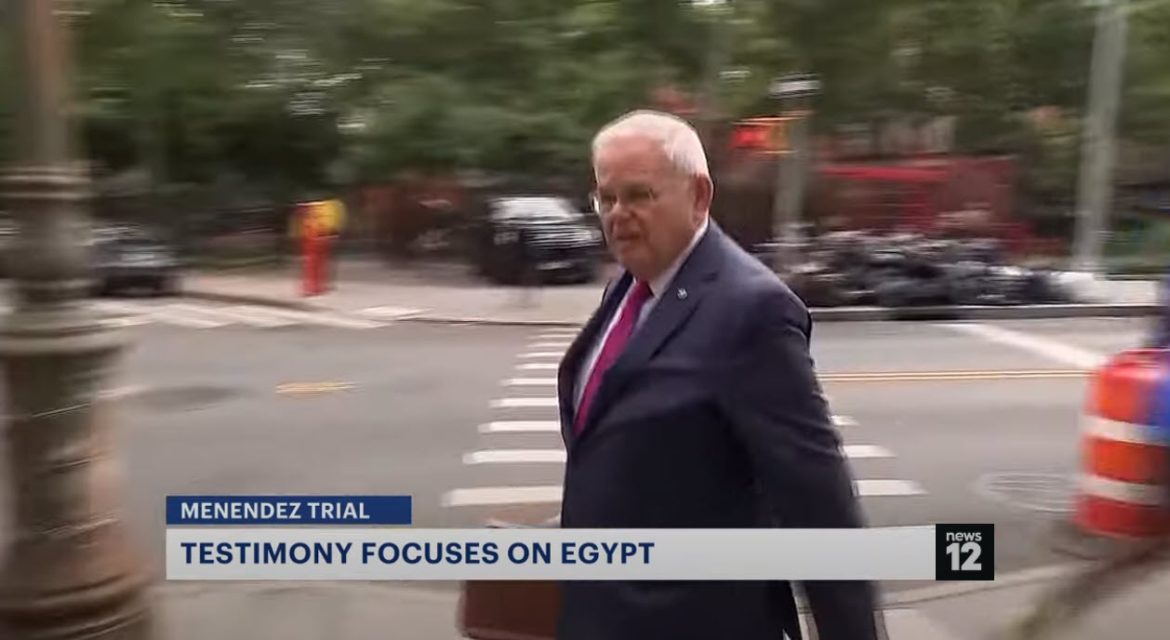Damning testimony has emerged in the seventh week of New Jersey Senator Bob Menendez’s corruption trial, as a Senate Foreign Relations Committee staffer testified that the senator altered his position on Egypt following a meeting with Egyptian officials. Menendez, who chaired the Committee at the time, is accused of acting as a foreign agent for Egypt and accepting bribes in exchange for political favors.
The staffer, Sarah Arkin, detailed how Menendez’s stance on Egypt’s human rights record appeared to shift dramatically after his interaction with an Egyptian defense official. Arkin testified that the veteran Democrat became less concerned with Egypt’s allegedly poor human rights practices post-meeting. She added that Egypt persistently sought military aid from Menendez without any conditions attached.
Arkin’s testimony highlighted the peculiar nature of planning Menendez’s 2021 trip to Qatar and Egypt, noting that the process became “weird” due to the senator’s insistence on involving Egypt in the trip. This insistence raised suspicions about Menendez’s motivations and the extent of his interactions with Egyptian officials.
The charges against Menendez include allegations of accepting cash, gold bars, and a Mercedes-Benz in exchange for providing political favors to New Jersey businessmen. These businessmen reportedly had interests in advancing Egypt’s military aid requests.
As the trial continues, this latest testimony adds to the mounting evidence against Menendez, painting a picture of a politician willing to leverage his influential position for personal gain. The case is being closely watched, given Menendez’s long tenure and significant role in U.S. foreign policy.
The implications of this trial are profound, not only for Menendez but also for the broader context of corruption and influence in American politics. The outcome could set a precedent for how similar cases are handled in the future, emphasizing the importance of integrity and accountability in public office.



